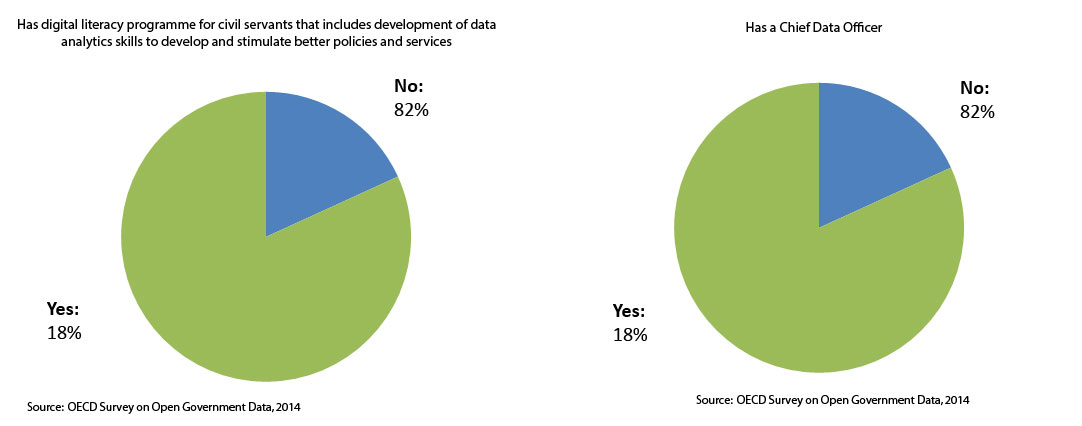Principle 3
Creation of a data-driven culture in the public sector
Key Issues
|
 |
Overview
Overview
The massive production of data calls for governments to adopt a strategic approach to their use of data and technology to strengthen public sector intelligence.
To take the full benefit of public sector information, governments should:
- Better exploit digital technologies and data analysis to understand societal needs;
- Embed the use of data throughout the policy cycle
- Put in place governance arrangements to ensure responsible and coherent use of data that benefits citizens and strengthens public trust
- Develop a culture of data analysis and use within the public sector that helps predicting new needs and trends, and understanding how to improve existing processes and dynamics.
To take full advantage of “big data”, governments should:
- Increase availability of evidence and data concerning their operations, processes and results
- Incentivise public engagement in using these data to improve understanding about governments’ performance
- Ensure that data and evidence are trustworthy and take steps to prevent misuse
- Develop a strategic view for big data and enhance public sector’s capabilities on big data analytics
Data

Good practices
canada
Principle 3 - Canada’s Open Government Portal and the Canadian Open Data Experience (CODE)
colombia
Principle 3 - Monitoring and Evaluation System for Digital Government
Principle 3 - Excellence and Appropriation Centres on Big Data, Data Analytics
Italy
Principle 3 - Digital Identity Public System
Overall - 3 Year ICT Plan
japan
Principle 3 - Online Government Administration Information and Open Data Policy
Principle 3 - Official Information System Total Management Database
korea
Principle 3 - Open Data Big Bang Project
mexico
Principle 3 - National One-Stop Portal
Principle 3 - National Digital Strategy
Principle 3 - Open Data Policy
Principle 3 - Red México Abierto / Open Mexico Network
Principle 3 - Prospera Digital
poland
Principle 3 - National Open Data Portal
portugal
Principles 3 - Digital Mobile Key
Principles 3 - Citizen’s Portal
slovenia
Principle 3 - Interoperable building blocks for data gathering
Principle 3 - Open Data Festival
Principle 3 - IT Reorganisation in the public administration
spain
Principle 3 - Data Intermediation Platform
sweden
Principle 3 - Verksamt.se

